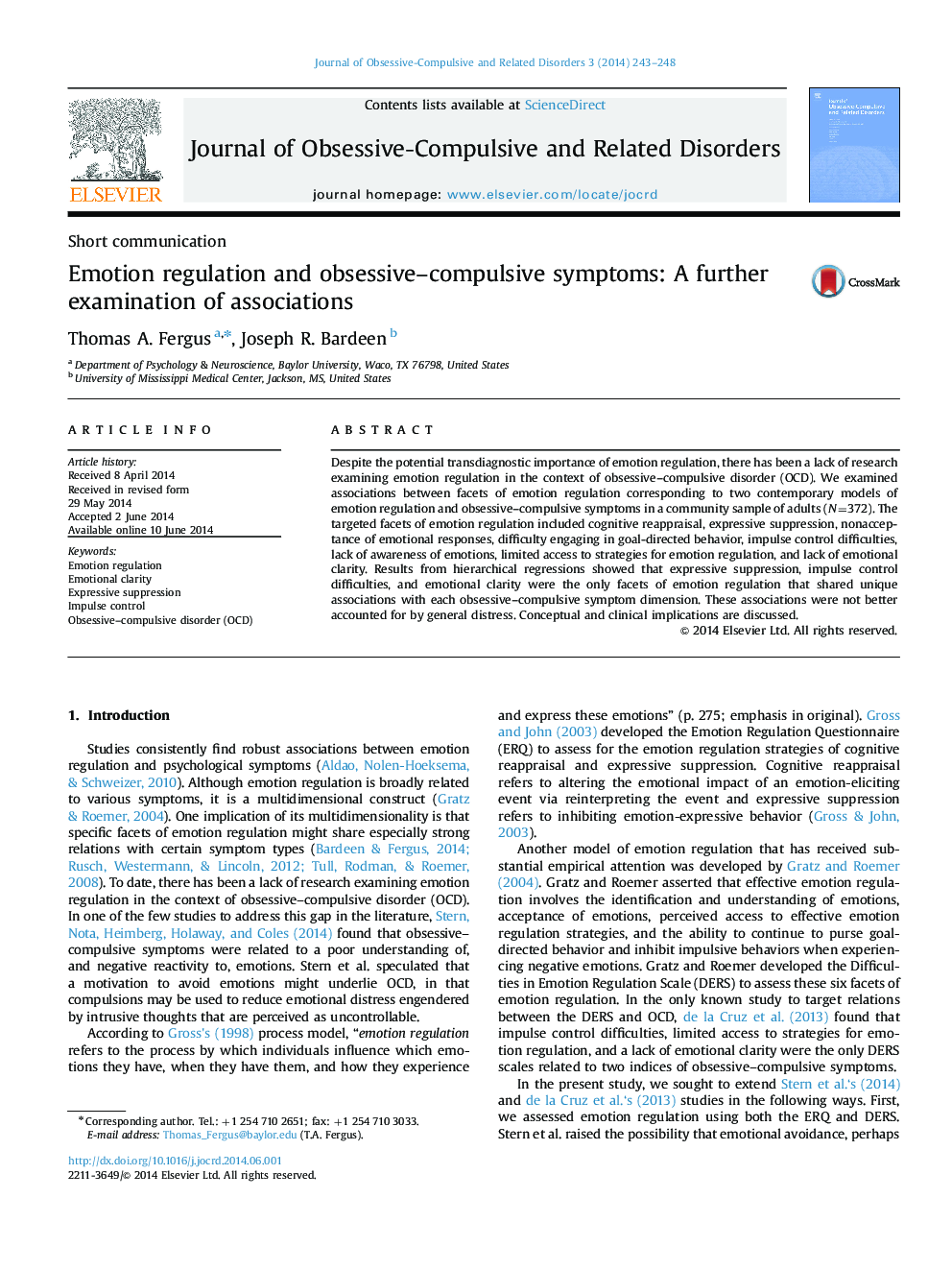| Article ID | Journal | Published Year | Pages | File Type |
|---|---|---|---|---|
| 912269 | Journal of Obsessive-Compulsive and Related Disorders | 2014 | 6 Pages |
•Targeted relations between emotion regulation and obsessive–compulsive symptoms.•Used emotion regulation measures corresponding to two contemporary models.•Nearly identical results found for each obsessive–compulsive symptom dimension.•Three specific facets of emotion regulation appear particularly relevant to OCD.
Despite the potential transdiagnostic importance of emotion regulation, there has been a lack of research examining emotion regulation in the context of obsessive–compulsive disorder (OCD). We examined associations between facets of emotion regulation corresponding to two contemporary models of emotion regulation and obsessive–compulsive symptoms in a community sample of adults (N=372). The targeted facets of emotion regulation included cognitive reappraisal, expressive suppression, nonacceptance of emotional responses, difficulty engaging in goal-directed behavior, impulse control difficulties, lack of awareness of emotions, limited access to strategies for emotion regulation, and lack of emotional clarity. Results from hierarchical regressions showed that expressive suppression, impulse control difficulties, and emotional clarity were the only facets of emotion regulation that shared unique associations with each obsessive–compulsive symptom dimension. These associations were not better accounted for by general distress. Conceptual and clinical implications are discussed.
